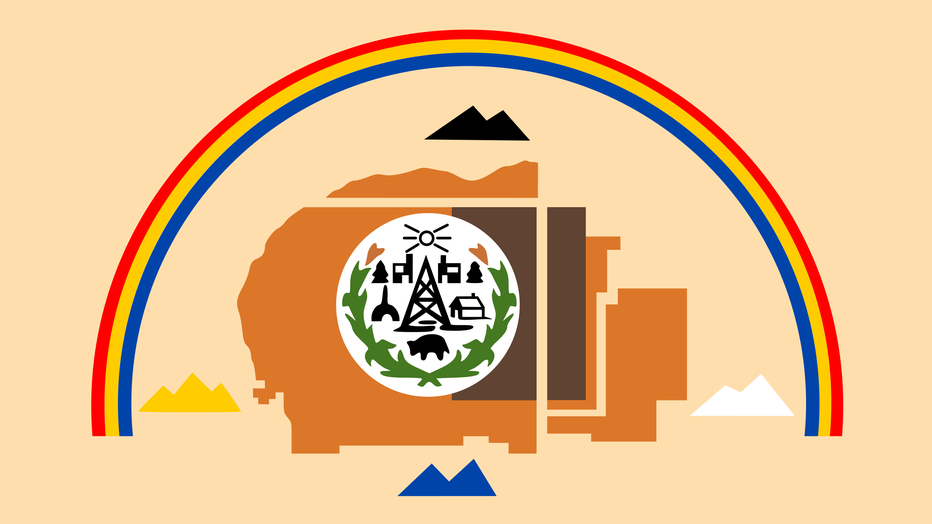Navajo lawmakers to take up coronavirus-related bills
FARMINGTON, N.M. - Navajo Nation lawmakers are considering overturning a presidential veto of a bill that cancels the tribe’s primary election in early August over concerns about the coronavirus.
Navajo voters narrow the list of candidates for local chapter officials in line with the statewide primary election in Arizona.
Tribal lawmakers approved a bill in April to cancel the tribe’s primary election and decide the winner by plurality vote in the November general election. Tribal President Jonathan Nez later vetoed the action and urged lawmakers and election officials to come up with alternatives to preserve tribal members’ rights to vote.
Nearly 30% of Navajo voters turned out for the tribe’s last primary election for local officials in 2016.
The veto override requires a two-thirds vote of the Navajo Nation Council, which is holding its summer session remotely this week.
The lawmakers heard reports on July 20 from tribal officials that overwhelmingly focused on the coronavirus.
The tribe reported 24 new confirmed cases of COVID-19 on July 20, bringing the total known infected on the vast reservation to 8,617. More than two-thirds have recovered.
Several more deaths reported brought the toll to 422 as of this past weekend.
Residents of the reservation that extends into Arizona, New Mexico and Utah have been under a mandate to wear masks when out in public. The tribe also has daily, nighttime curfews and weekend lockdowns that include the closure of businesses.

Navajo Nation flag
Navajo President Jonathan Nez said officials are working on an order that would require residents who travel to areas known as hot spots for coronavirus infections to quarantine for 14 days when they return to the reservation.
The Tribal Council also is considering legislation this week to extending the 2020 fiscal year by two months to Dec. 31 and allowing chapter governments to hold meetings remotely.
In order to protect yourself from a possible infection, the CDC recommends:
- Avoid close contact with people who are sick.
- Avoid touching your eyes, nose, and mouth.
- Stay home when you are sick.
- Cover your cough or sneeze with a tissue, then throw the tissue in the trash.
- Clean and disinfect frequently touched objects and surfaces using a regular household cleaning spray or wipe.
- Cover your mouth and nose with a cloth face cover when around others
- Wash your hands often with soap and water for at least 20 seconds, especially after going to the bathroom; before eating; and after blowing your nose, coughing, or sneezing.
- Monitor your health daily
MAP: Worldwide interactive Coronavirus case data
MAP: Arizona Coronavirus cases by zip code
FULL COVERAGE: fox10phoenix.com/coronavirus
CDC: How coronavirus spreads, symptoms, prevention, treatment, FAQ
Arizona COVID-19 resources, FAQ: azdhs.gov/coronavirus
On CoronavirusNOW.com, you'll find extensive coverage about COVID-19, including breaking news from around the country, exclusive interviews with health officials, and informative content from a variety of public health resources.
RELATED:
- Coronavirus in Arizona: Latest case numbers
- Coronavirus: Symptoms, testing and how to prepare amid growing COVID-19 outbreak
- How coronavirus differs from flu: Symptoms to watch for
Symptoms for coronavirus COVID-19 include fever, coughing, and shortness of breath. These, of course, are similar to the common cold and flu.
Expect a common cold to start out with a sore or scratchy throat, cough, runny and/or stuffy nose. Flu symptoms are more intense and usually come on suddenly, and can include a high fever.
Symptoms of COVID-19 may appear more slowly. They usually include fever, a dry cough and noticeable shortness of breath, according to the World Health Organization. A minority of cases develop pneumonia, and the disease is especially worrisome for the elderly and those with other medical problems such as high blood pressure, obesity, diabetes or heart conditions.
RELATED: Is it the flu, a cold or COVID-19? Different viruses present similar symptoms
Right now there's one big difference between flu and coronavirus: A vaccine exists to help prevent the flu and it's not too late to get it. It won't protect you from catching the coronavirus, but may put you in a better position to fight it.
To protect yourself, wash your hands well and often, keep them away from your face, and avoid crowds and standing close to people.
And if you do find yourself showing any of these flu or coronavirus symptoms - don't go straight to your doctor's office. That just risks making more people sick, officials urge. Call ahead, and ask if you need to be seen and where.


